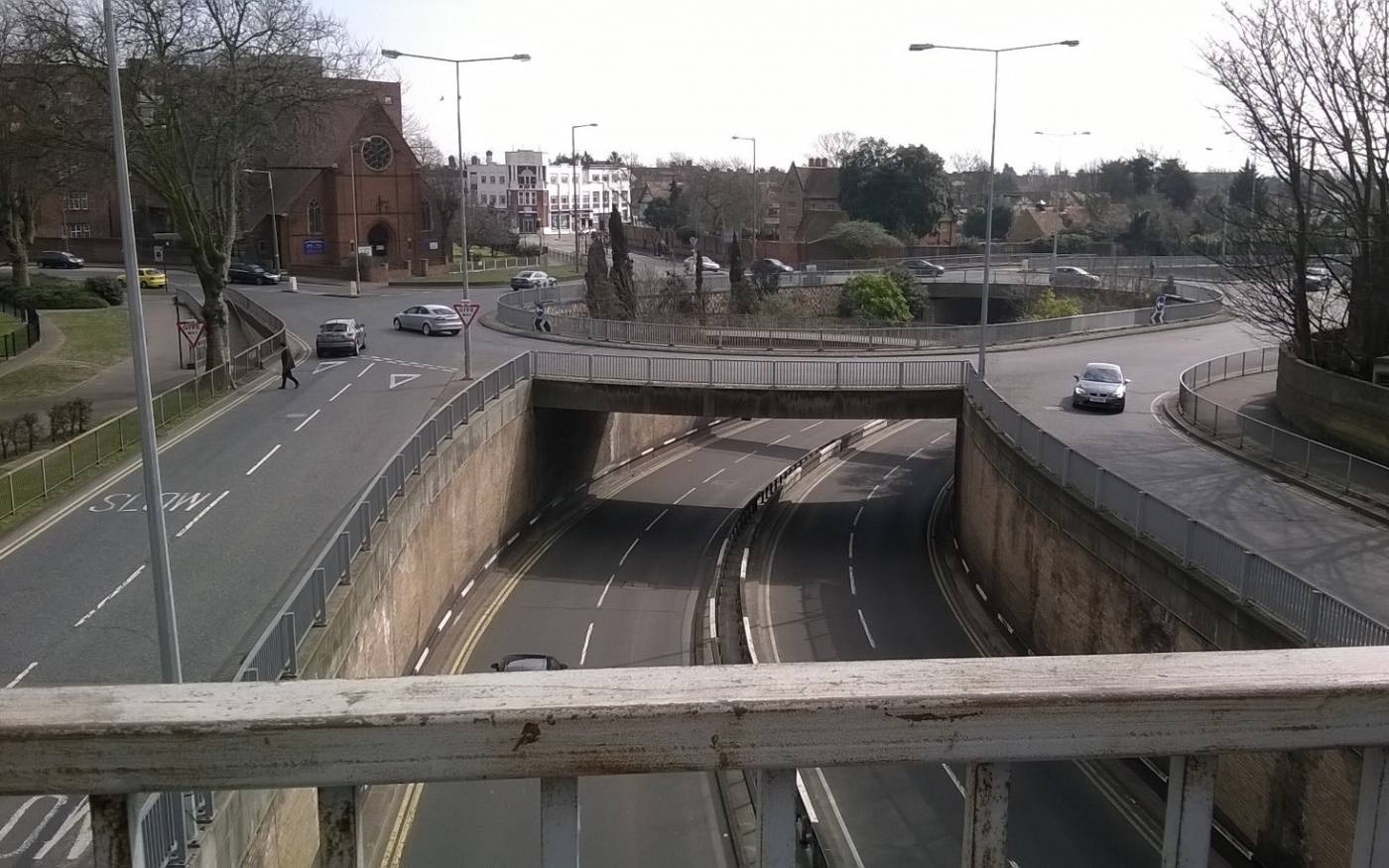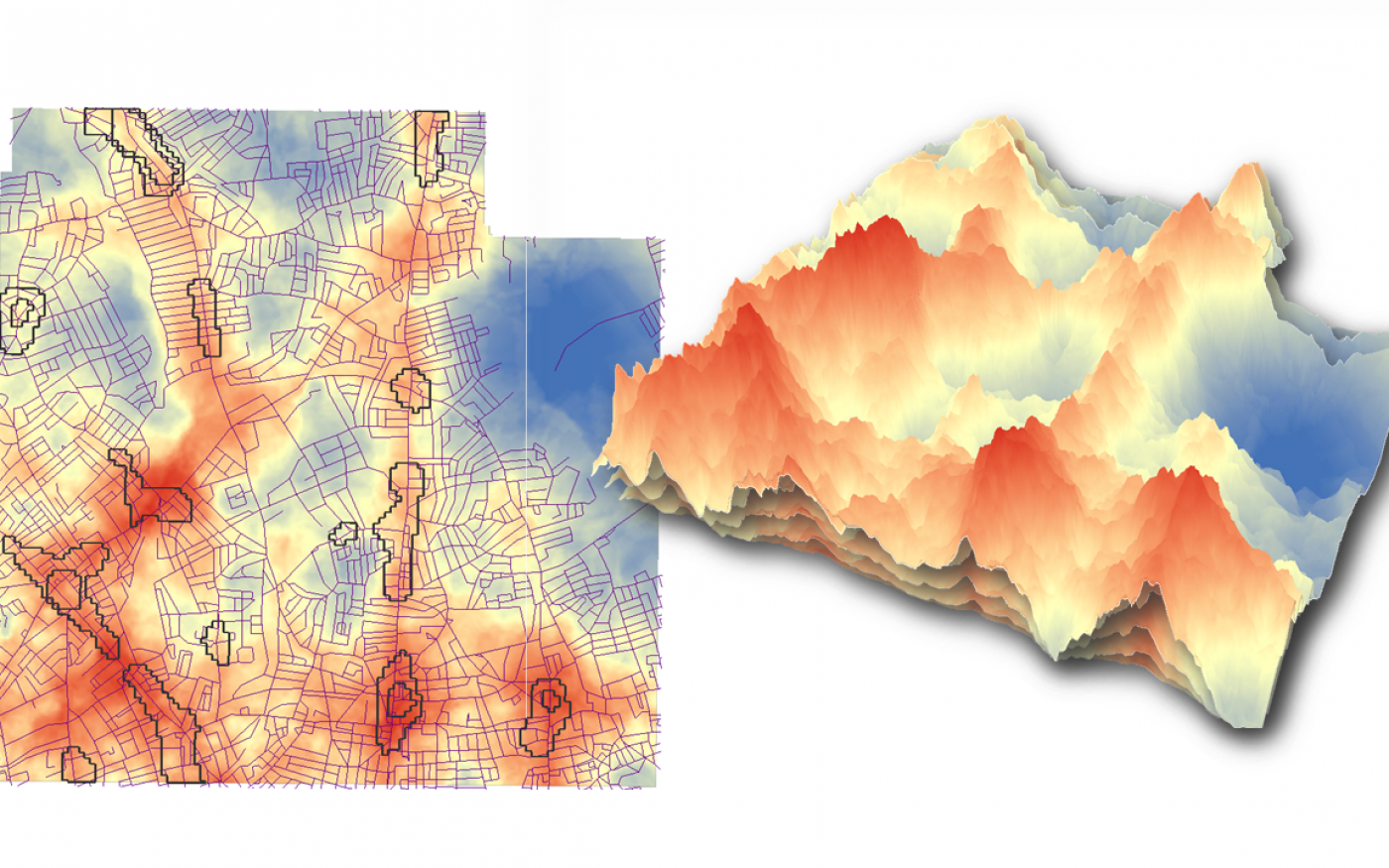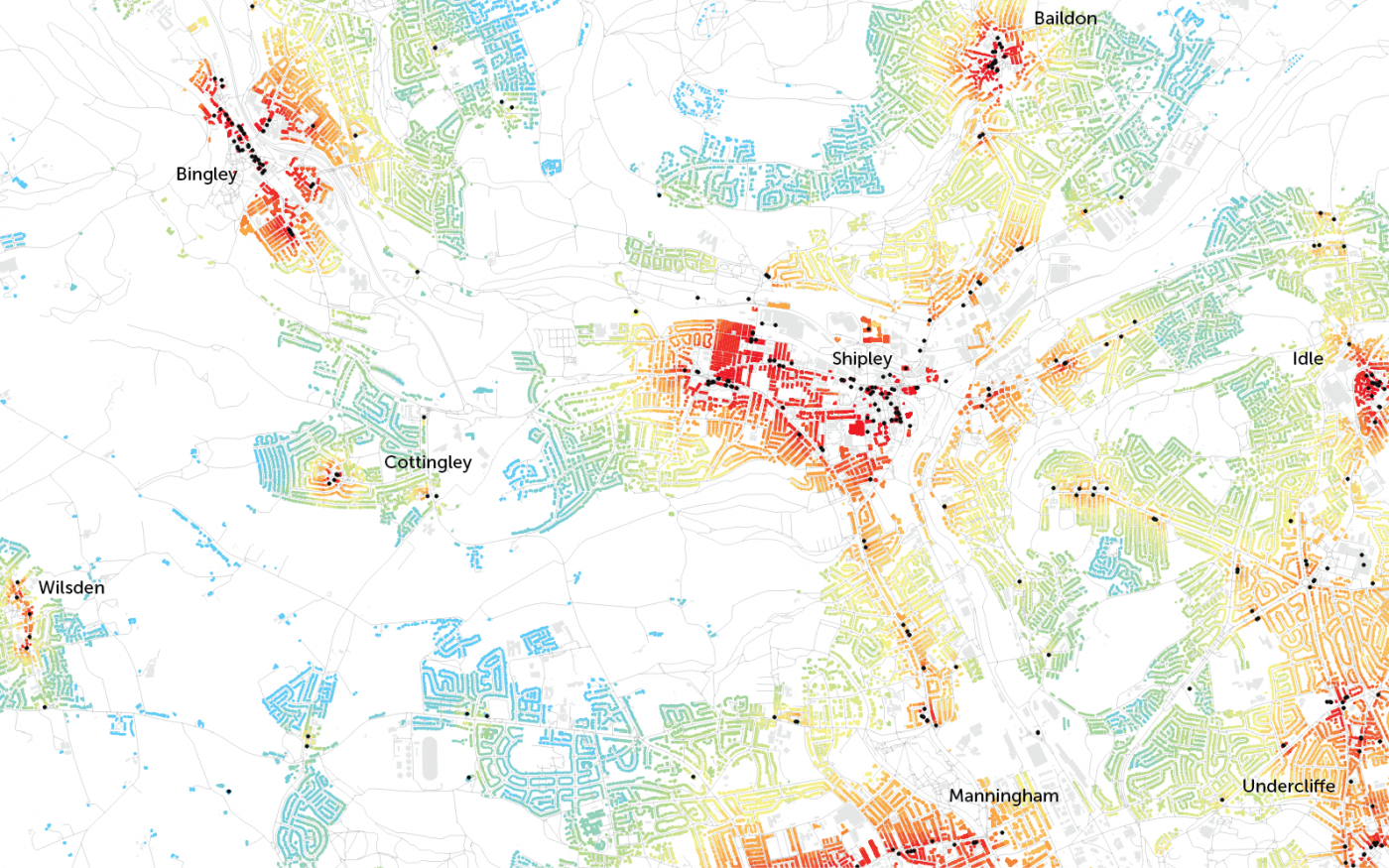The Healthy Places project aims to improve understanding of the importance of the built environment in the prevention of non-communicable diseases, poor mental health and wellbeing.



Overview
The Healthy Places project aims to improve understanding of the importance of the built environment in the prevention of non-communicable diseases, poor mental health and wellbeing. The research involved a series of projects examining how living, working and socialising patterns can shape health over time.
Studying the walkability of an area using space syntax methods has revealed how physical barriers to walking can influence the formation of social connections, or where people might be more likely to feel lonely. Analysis of walking patterns set against street accessibility, land use mix, public transport availability and population density led to a method to highlight where designers might focus their efforts in improving local centres, and where policy makers need to work on addressing pollution and lack of safety from busy traffic. Greater use of green spaces was found to be associated with their integration into the spatial network and local intervisibility. As access to healthy food is a basic prerequisite for health the role of spatial setting and social context in this condition was also investigated.
The research shows that while the built environment is important for health, there is little consensus about which features are most important due to differences in measurement and outcomes across disciplines. To this end, Healthy Places forms part of a larger project researching what types of intervention in children’s neighbourhoods are most likely to improve their health and wellbeing over time and, in parallel, is developing standard built environment indicators for analysing child health outcomes. The project is also researching adolescent mental health across the UK.
- People
Honorary Senior Research Fellow
Dr Ashley DhananiSenior Research Fellow
Dr Kimon KrenzResearch Associate
Dr Paulo AnciaesPrincipal Investigator
Professor Laura VaughanCo-Investigators
Professor Nicola Christie
Professor Muki Haklay
Professor Sonia Johnson
Professor Peter Jones
Professor Jenny Mindell
Dr Praveetha Patalay
Dr Alexandra Pitman- External partners
Street mobility and accessibility: developing tools for overcoming older people's barriers to walking. EPSRC Grant number: EP/K037323/1
ActEarly: a City Collaboratory approach to early promotion of good health and wellbeing. Medical Research Council Grant number: MR/S037527/1,
Loneliness and social isolation in mental health: proposal for a network for cross-disciplinary collaboration and capacity development. Economic and Social Research Council Grant number: ES/S004440/1
Connected Bradford: A Whole System Data Linkage Accelerator. Funded by Bradford Teaching Hospitals NHS Foundation Trust.
- Image credits
Image 1: Southend-on-Sea road intersection © Muki Haklay and the Street Mobility project
Image 2: Walkability model © I and the Adaptable Suburbs project
Image 3: Fast food landscape in Bradford © Kimon Krenz and the Connected Bradford project
 Close
Close




